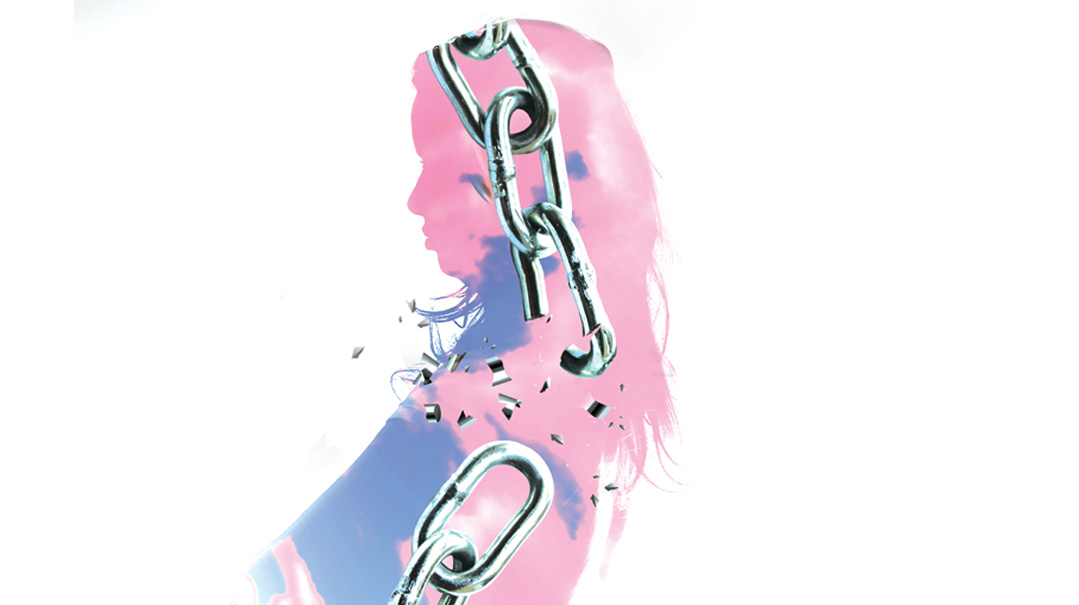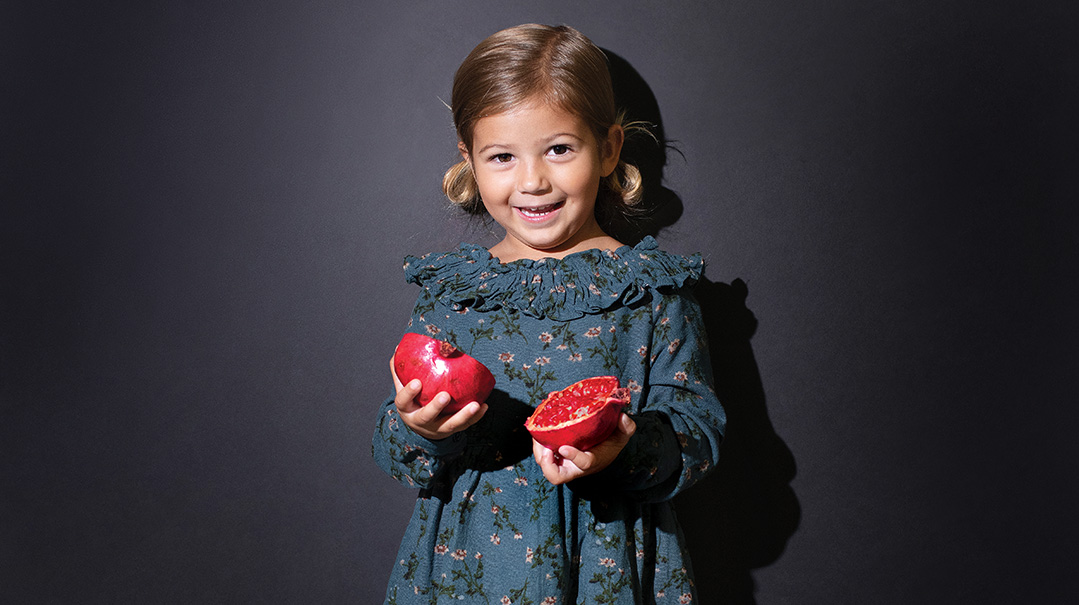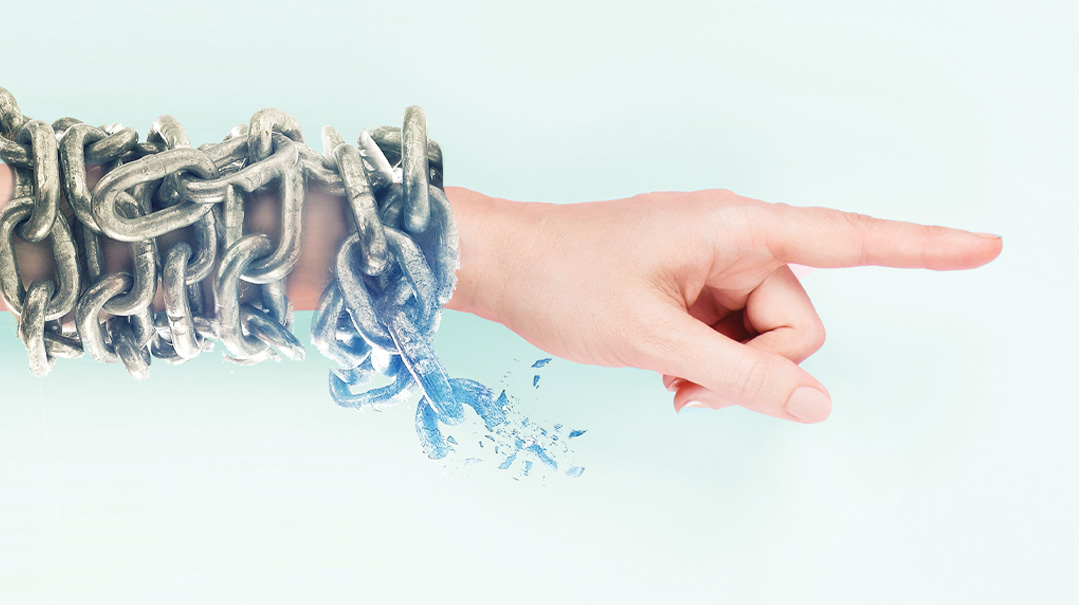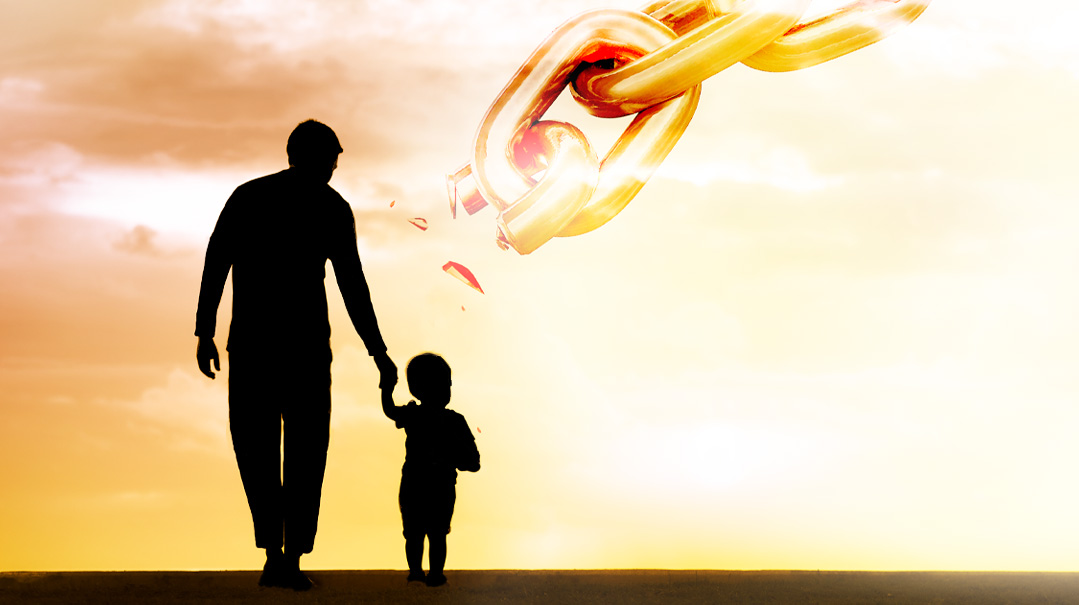Heartfelt
| September 20, 2022I could never explain myself so I was always convinced that someone was mad at me

“R
emember when?”
Those two words bring up a lot of distress for me. Mostly because I can’t. Memory is selective, and the memories I draw on most are of being the peacemaker. Had you seen me as a tween, you would have deduced that I was happy-go-lucky. The “Baruch Hashemer,” if you will.
My mantras included: “Great! Great!” It was always great. And: “AMAAAZING!” It was always amazing. And the all-time favorite: “No Worries.” Except it wasn’t great, nor amazing, and there were many, many worries.
As a kid, negative feelings were a no-no. “Ach, why are you upset? Snap out of it.” And, “Stop being mad, make shalom.”
I could have cried very easily, because many things made me sad: Someone making fun of me (I was the epitome of “your mother dressed you funny” — apparently even the saleslady at Alexanders department store couldn’t convince my mother that the mauve paisley blouse didn’t go with a red-and-white checked skirt); being left out (I was only chosen for things like dodgeball because my small size made it harder to hit me); and mostly, being misunderstood.
I could never explain myself so I was always convinced that someone was mad at me. Nothing aggravated me more than being misunderstood and having someone be mad at me unfairly.
Especially my father. Daddy was a hardworking man. Handsome, athletic, skilled, and in my eyes, the wisest human in the world. With one sister who rebelled against the rules, and another with special needs, my birth brought him enormous joy and me a huge burden of responsibility.
My father grew up in Europe, impoverished, and, as the chubby middle child, often ignored or mocked. His life didn’t get easier with marriage: his first wife was committed to an asylum following her postpartum psychosis after their first child was born. (The 60s had a lot to learn about dealing with mental health and removing the stigma. We learned that she was put in a mental asylum only at his shivah; until then we were told her absence was because she died during childbirth.)
Daddy suffered. He didn’t speak about it, but we knew. So, how could I cry over something as small as being left out?
To add to the stress, it was almost impossible to read his mood when he came home. To be sure, it wasn’t a good mood. He was silent, and he glared, either sad, or angry, or frustrated. I made it my business to figure out what made Daddy upset and how I could cheer him up. I knew it was up to me. Certainly, my sister and brother couldn’t help.
“So, your father never cried?” my friend once asked.
“Well, legend has it that he cried when he heard that my cousin was killed in a car accident.” But even that was a rumor.
I grew up feeling very bad about feeling. Crying or expressing emotion was so verboten in my house that when a classmate passed away in tenth grade, I couldn’t process it. I went as far as laughing at the funeral to prevent myself from shedding tears. When I did cry, it was always in private, and always painful, never cathartic. Crying filled me with shame. I washed my face immediately.
The cycle continued. As a mother, I got impatient when my kids told me how they felt. Their crying made me uncomfortable. Don’t get me wrong. I was a mama bear when it came to defending them. But a stiff upper lip was the preferred pose.
Fast forward to 2019, which was a very difficult year for me. I fondly refer to it as my year of Gehinnom. Following in the footsteps of my father, I didn’t share the reason for my pain. I tried therapy but the voice of my father kept saying, “That’s what is upsetting you?” I felt shame sharing my feelings.
Depression had a hold on me, but being the gam zu l’tovah poster child, I pulled myself out of bed, cooked meals, and did carpool. But I was sad. And just waking up and existing were becoming too much for me.
One Friday night, I couldn’t hold it together anymore. I lay on the couch, catatonic and defeated. It wasn’t the first time my family saw me sad, but even lows can hit new lows.
My eight-year-old daughter came in, looked at me, and announced, “Mommy, you sit down, and I’ll take care of everything. I’ll serve and clear up, and don’t worry about putting the food away.” This from my daughter who usually goes to the couch with a book after the fish.
Sarale’s face held a beautiful smile. But her eyes said something else. Was that fear? I rose from my despair long enough to call her over.
“Sarale, are you helping because you want to, or because you’re worried about me?”
Sarale assured me that she wanted to take care of the meal, but when I held her gaze, she admitted, “Well, maybe a little.”
With strength I didn’t know I had, I called my kids over. “Listen up,” I said to Sarale and her siblings. They looked nervous, worried that this just might be the point at which their mother cracked.
“Yes. I am sad. And it isn’t fair of me to expect you to be a mind reader to understand why I’m sad and worry that maybe there’s something you did to cause it. I just want you to know that my happiness isn’t your responsibility. It’s nice to want to cheer people up, but my moods or facial expressions aren’t a puzzle you have to solve.
Sarale’s shoulders softened, and she gave a sheepish smile. She was still wary. One can’t expect eight years of nonverbal communication issues to be solved in a five-minute monologue. But a dent was made. She did help with the meal, though not quite from soup to nuts. That was fine. The important thing is that she was more relaxed.
The healing came slowly. We talked more about feelings in our house. When my oldest son confided in me that he was dealing with a lot of anxiety during certain parts of the day, instead of sticking a baruch Hashem label on it with a sprinkling of gam zu l’tovah — while being unable to internalize the reality —we talked about it. Wading through the feelings, not running away, became more comfortable. As a wise friend once taught me, “The only way out is through.”
That summer, we visited Sarale in camp. When the announcement came that visiting day was almost over, Sarale looked up and mumbled, “Well, I guess I have to find something to distract myself with when you leave. I get really anxious.”
I looked at her, the question or? hanging.
Sarale rolled her eyes. “Or, I can feel my feelings,” she said, smiling. “Are you happy now?”
I wish someone had told a little girl 40 years earlier the lesson my little girl learned: feelings aren’t scary or shameful. But I’m pretty sure she finally learned it one Friday night in 2019.
(Originally featured in Family First, Issue 811)
Oops! We could not locate your form.






